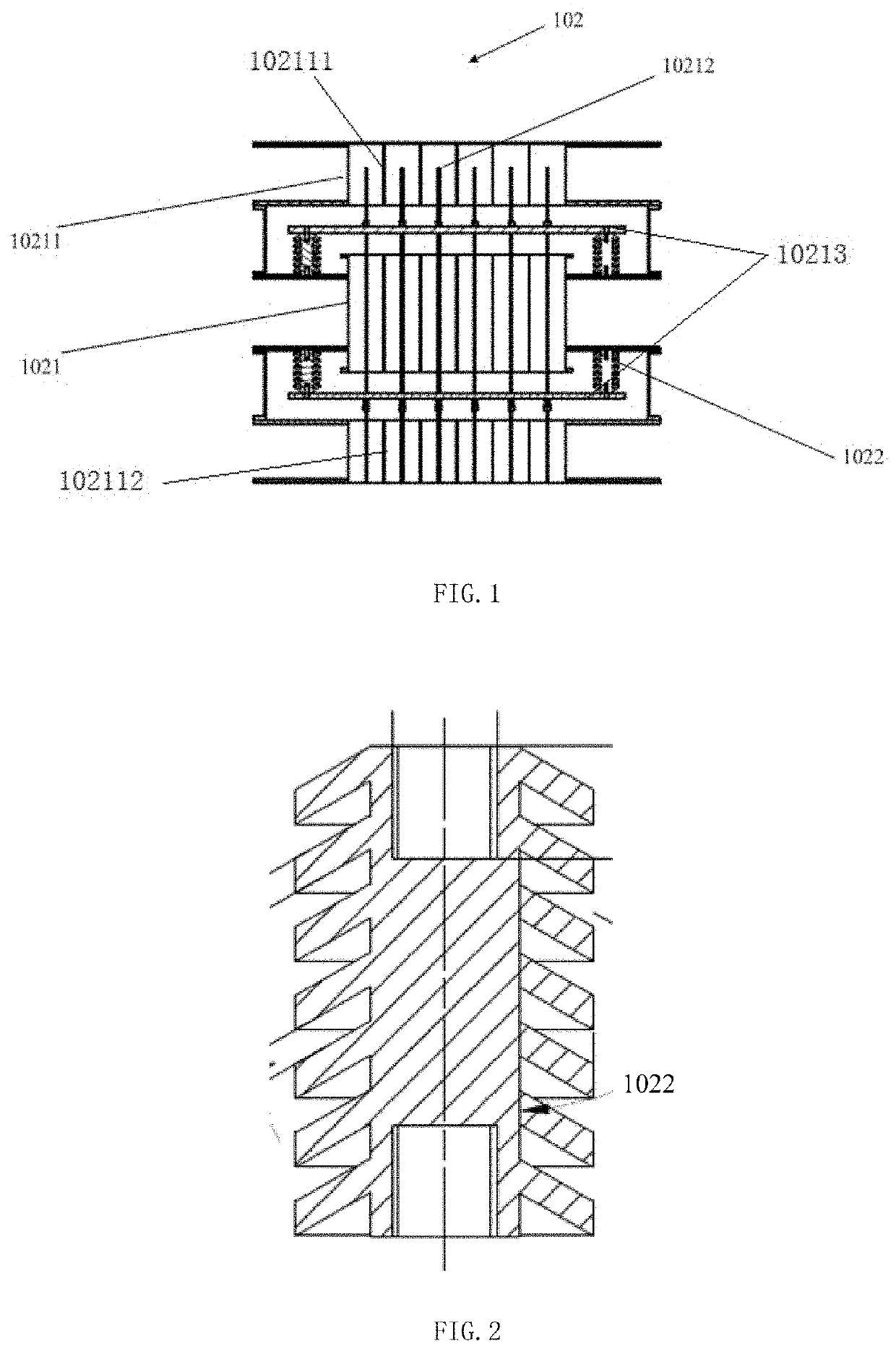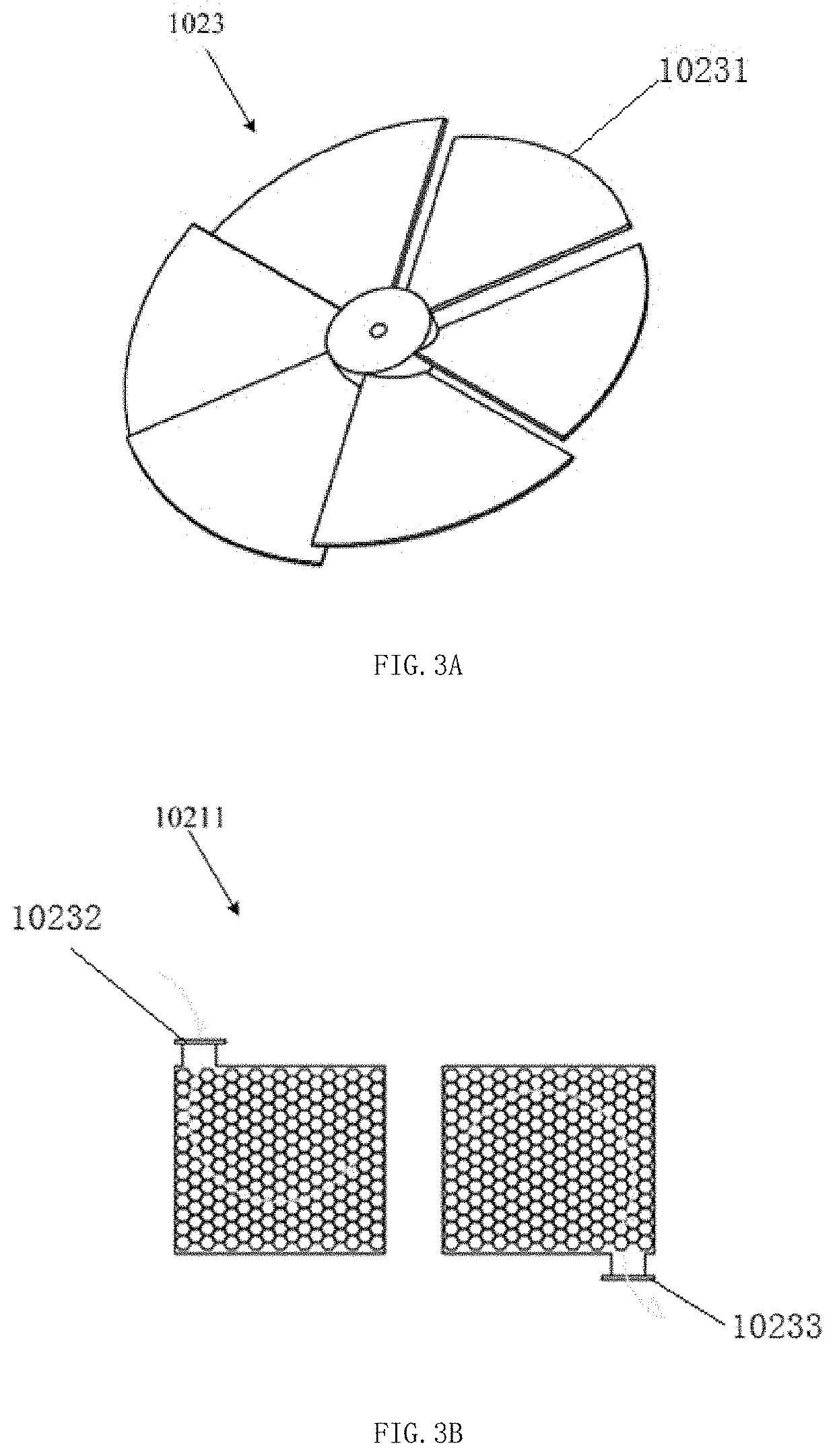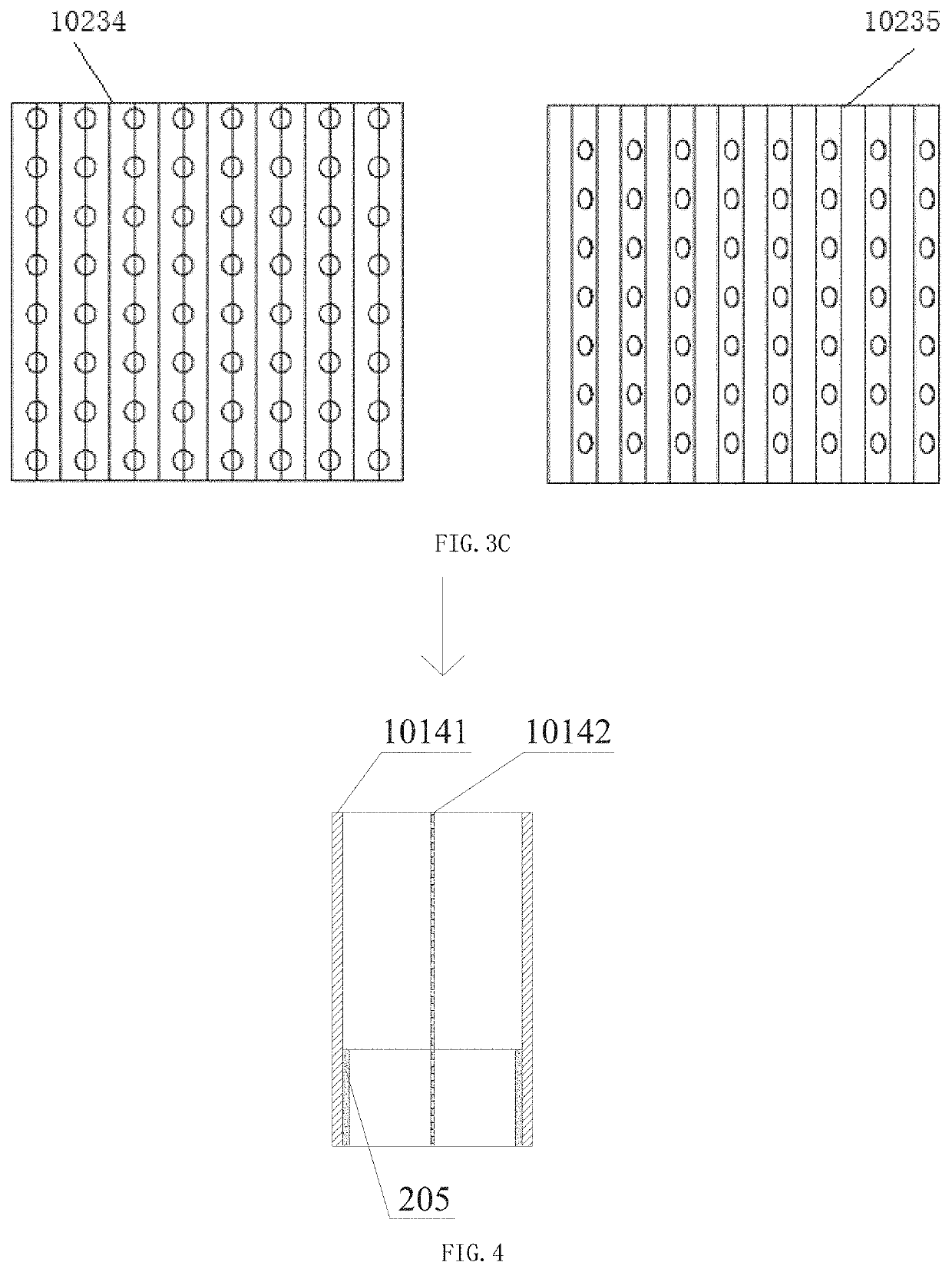Engine exhaust dust removal system and method
a technology of exhaust gas and dust removal system, which is applied in the direction of machines/engines, electric supply techniques, separation processes, etc., can solve the problems of affecting the performance and fuel consumption of the engine, the dedusting effect of a dpf is unstable, and fails to meet the latest filtering requirements, so as to improve the ionization dedusting effect and reduce the effect of electric field coupling
- Summary
- Abstract
- Description
- Claims
- Application Information
AI Technical Summary
Benefits of technology
Problems solved by technology
Method used
Image
Examples
embodiment 1
[0464]An engine exhaust gas dedusting system of the present embodiment includes exhaust gas treatment system which is configured to treat an exhaust gas to be emitted into the atmosphere.
[0465]FIG. 1 shows a structural schematic diagram of an embodiment of an exhaust gas treatment device. As shown in FIG. 1, the exhaust gas treatment device 102 includes an exhaust gas electric field device 1021, an exhaust insulation mechanism 1022, an exhaust gas equalizing device, an exhaust gas water filtering mechanism, an exhaust gas ozone mechanism and an oxygen supplementing device.
[0466]The exhaust gas electric field device 1021 includes an exhaust gas dedusting electric field anode 10211 and an exhaust gas dedusting electric field cathode 10212 provided inside the exhaust gas dedusting electric field anode 10211. An asymmetric electrostatic field is formed between the exhaust gas dedusting electric field anode 10211 and the exhaust gas dedusting electric field cathode 10212. After a gas con...
embodiment 2
[0481]An exhaust gas electric field device shown in FIG. 4 includes an exhaust gas dedusting electric field anode 10141, an exhaust gas dedusting electric field cathode 10142, and an exhaust gas electret element 205. An exhaust gas ionization dedusting electric field is formed when the exhaust gas dedusting electric field anode 10141 and the exhaust gas dedusting electric field cathode 10142 are connected to a power supply. The exhaust gas electret element 205 is provided in the exhaust gas ionization dedusting electric field. The arrow in FIG. 4 shows the flow direction of a substance to be treated. The exhaust gas electret element 205 is provided at an exhaust gas electric field device exit. The exhaust gas ionization dedusting electric field charges the exhaust gas electret element. The exhaust gas electret element has a porous structure, and the material of the exhaust gas electret element is alumina. The exhaust gas dedusting electric field anode has a tubular interior, the exh...
embodiment 3
[0487]An exhaust gas electric field device shown in FIG. 5 and FIG. 6 includes an exhaust gas dedusting electric field anode 10141, an exhaust gas dedusting electric field cathode 10142, and an exhaust gas electret element 205. The exhaust gas dedusting electric field anode 10141 and the exhaust gas dedusting electric field cathode 10142 form an exhaust gas flow channel 292, and the exhaust gas electret element 205 is provided in the exhaust gas flow channel 292. The arrow in FIG. 5 shows the flow direction of a substance to be treated. The exhaust gas flow channel 292 includes an exhaust gas flow channel exit, and the exhaust gas electret element 205 is close to an exhaust gas flow channel exit. The cross section of the exhaust gas electret element 205 in the exhaust gas flow channel occupies 10% of the cross section of the exhaust gas flow channel, as shown in FIG. 7, which is S2 / (S1+S2) 100%, where a first cross sectional area S2 is the cross sectional area of the exhaust gas ele...
PUM
 Login to View More
Login to View More Abstract
Description
Claims
Application Information
 Login to View More
Login to View More - R&D
- Intellectual Property
- Life Sciences
- Materials
- Tech Scout
- Unparalleled Data Quality
- Higher Quality Content
- 60% Fewer Hallucinations
Browse by: Latest US Patents, China's latest patents, Technical Efficacy Thesaurus, Application Domain, Technology Topic, Popular Technical Reports.
© 2025 PatSnap. All rights reserved.Legal|Privacy policy|Modern Slavery Act Transparency Statement|Sitemap|About US| Contact US: help@patsnap.com



